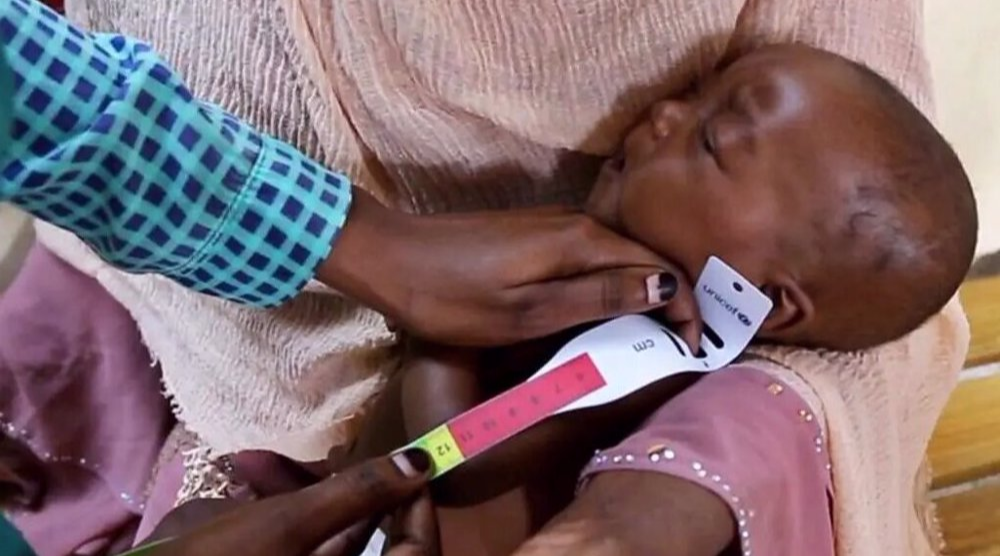
A six-month-old baby is screened for malnutrition in a hospital in Blue Nile state, Sudan. (File photo by UNICEF)
United Nations, August 7 (RHC)-- High-ranking officials from the United Nations have made a formal appeal to the Security Council to seek assistance in facilitating humanitarian aid access in Sudan, emphasizing the need for aid to reach the affected areas in order to combat the famine that has emerged in at least one location in North Darfur.
Senior UN aid official Edem Wosornu told the Security Council on Tuesday that the occurrence of a famine signifies that “we did not do enough. It means that we, the international community, have failed.” It also indicates in sufficient efforts, and a failure on the part of the international community to address the issue. She noted that a UN Sudan aid appeal for $2.7 billion was only 32% funded.
Stephen Omollo, a senior official from the UN World Food Programme, stated that in the absence of a ceasefire, the council's assistance is urgently needed to facilitate operations effectively and without disruption.
A Chinese deputy permanent representative to the UN, Dai Bing, urged the global community Tuesday to enhance its efforts in tackling the humanitarian crisis in Sudan and to seek a political resolution to the persistent armed conflict.
Dai urged the international community to enhance their attention and contributions, fulfill their aid commitments without delay, and implement significant actions to mitigate the humanitarian crisis. He further added that China urges all relevant parties to adhere to their responsibilities under international humanitarian law, to reduce civilian casualties, to make every effort to safeguard agricultural land, water resources, and other farming infrastructure, and to facilitate the recovery of agricultural production.
Meanwhile, Sudan’s UN Ambassador Al-Harith Idriss Al-Harith Mohamed told the council that in order to address the dire situation in the country, “if there is a famine … we are ready to cooperate with you, and we will open the crossings for any humanitarian assistance.”
“It is not the government – that I am proud to present here – that is blocking humanitarian aid,” the envoy added.
The paramilitary Rapid Support Forces (RSF) has been fighting the army, led by Gen. Abdel Fattah Burhan, for control of the North African country since April 15 last year in a war that has killed tens of thousands of people and displaced nearly eight million.
The Integrated Food Security Phase Classification (IPC), a global hunger monitoring organization, reported last week that over 15 months of conflict in Sudan, coupled with limitations on aid distribution, have resulted in famine conditions within the Zamzam camp for internally displaced individuals in North Darfur.
Zamzam is situated in a region that remains the final major stronghold of the RSF throughout Darfur. The RSF has been encircling this area, and for several months, no assistance has been delivered to the extensive camp.
In February, the Sudan government prohibited the delivery of aid via the Adre border crossing, which is among the most direct routes to the region suffering from hunger. Officials from the government have asserted that this crossing is utilized by the RSF for the transportation of weapons.

